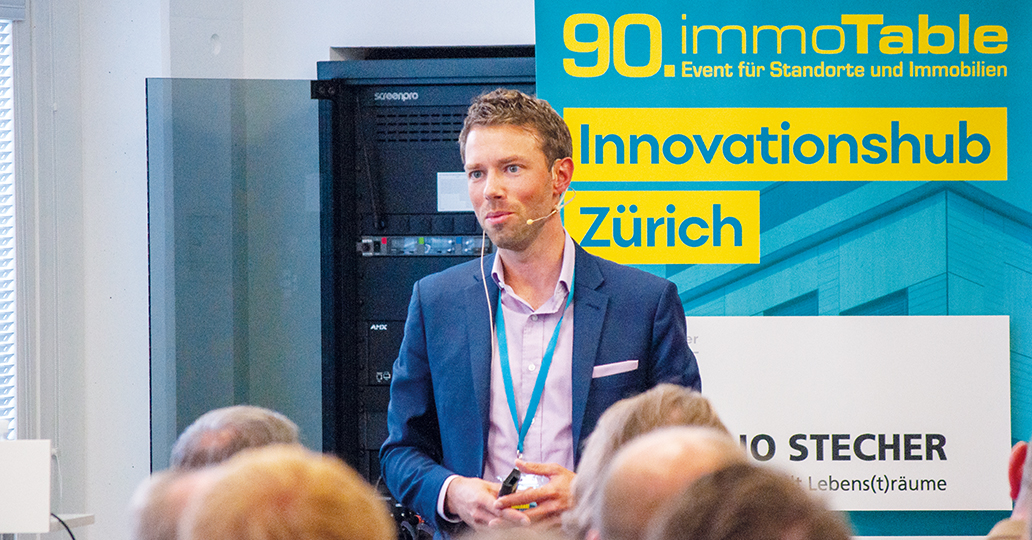Learn faster than change

With his company PropTechMarket, Mario Facchinetti is known for his work as a driving force and entrepreneur. He sees digital change as an underestimated challenge in the real estate industry.
In contrast to earlier, more linear revolutions, digital change is advancing exponentially. That means, you don’t notice anything for a long time, and suddenly the change is there. In contrast to the film, music or car industries, which were surprised by Netflix, Spotify or Tesla, this development should not be overslept. “And that is exactly why it is particularly worthwhile to invest in innovations and stay on the ball,” said Mario Facchinetti in his presentation at this year’s Swiss ImmoTable in the building arena in Volketswil, Switzerland. The name of his company PropTechMarket stands for technology-driven, new innovations (property technology), which are becoming increasingly important for the real estate industry.
Technologies should be used where they are superior to humans. Often enough, the change is creeping: “Ten years ago no taxi driver would have expected that a tech company from San Francisco called Uber could ever compete with him. Or to put it quite simply: Nothing remarkable happens for a long time, with many new companies putting themselves in a starting position, collecting data and experience, ”says Facchinetti. So far, no company has succeeded in turning the real estate industry upside down. However, many companies were working on this vision. Now it’s about building experiences faster than digital change advances.
New technologies are revolutionizing the market: “One can imagine that we will need different skills in the future than we do today,” says Facchinetti. “Many courses are hopelessly out of date. And soon the question arises as to whether it would be better to hire a graduate with a master’s degree or a lateral thinker with a lot of practical know-how. ” Investing in innovation gives you the time to react to new market conditions. There are currently around 7,000 new companies at work around the world who want to win part of the real estate pie. And in contrast to five years ago, these young savages are increasingly receiving risk capital from investors in order to gain a foothold in the industry with competitive prices.
